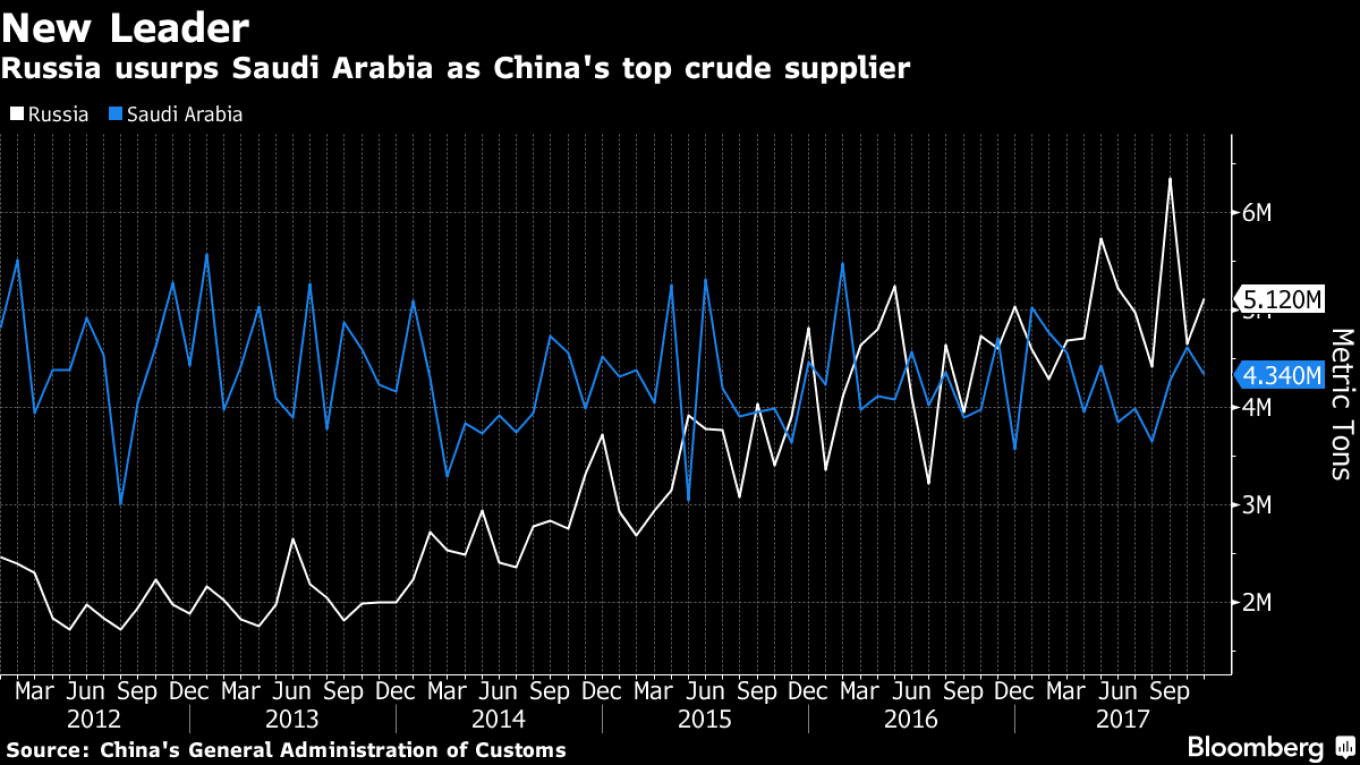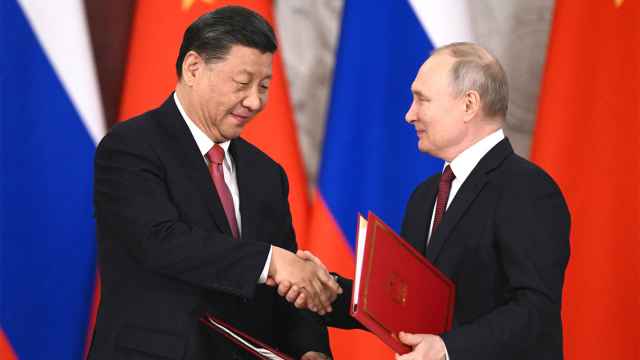(Bloomberg) — Europe’s set to be stuck with a higher oil bill as Russia shifts more of its supply to the Chinese oil market.
As the world’s second-biggest economy buys more, crude shipments from Primorsk port in the Baltic region will be cut, according to industry consultant FGE. The reduction will push up the price of varieties available for sale to Europe. Russia is already the biggest supplier to the China, and will probably boost exports to the country by 200,000 barrels a day in 2018 from a year earlier, FGE said.
After a glut sparked the biggest price crash in a generation and starved Russia of oil revenues, the nation sought to boost market share in the world’s top importer. It’s now supplanted Saudi Arabia as the top exporter to China, even as the two producers lead efforts to shrink the global oversupply by curbing output. A pipeline that transports crude from the East Siberia-Pacific Ocean system has helped its mission to increase volumes.
“Russia is starting in effect immediately to shift crude exports away from Europe to China,” FGE said in a Dec. 29 note. “While we see overall crude exports from Russia flat year-over-year in 2018, this is bullish news for the Urals price due to its lower availability, in particular from the port of Primorsk.”
This increase in China-bound deliveries is expected to cut exports from Primorsk in January and February, and reduce pipeline flows to Eastern Europe in March, according to FGE. Shipments of the Urals grade from the port in January will likely fall by 160,000 barrels per day, compared with a year ago, while supplies from Novorossiysk in the Black Sea could remain largely flat, with some possible upside, according to the note.

The diversions have made Urals prices stronger at the end of December, compared with a month before, according to FGE. The grade turned about 60 cents a barrel costlier relative to London’s Brent crude, the benchmark for sales of the variety, the industry consultant said.
Pipeline Flows
China imports the bulk of Russian oil via inland pipes and seaborne shipments from the eastern ports of Kozmino, De-Kastri and Prigorodnoye. A second conduit between the two countries began operations on New Year’s Day, doubling China’s ESPO crude import capacity to 30 million tons annually, or about 600,000 barrels a day. The two lines run parallel to each other between Mohe at the border and Daqing in northeast Heilongjiang Province.
The Asian nation has also sought to expand its energy relationship with Russia. CEFC China Energy Co., a firm that’s grown from a small local trader to a global deal-making juggernaut, in November sold its first cargo of Russian crude after buying a $9 billion stake in Rosneft Oil Co. last year. The Russian energy giant will supply the Shanghai-based company with as much as 60.8 million tons, including the Urals, ESPO and Sokol grades, over five years.
Russia supplied 5.12 million tons of crude to China in November, official customs data show, the equivalent of about 1.3 million barrels per day. It also aims to start natural gas sales via the Power of Siberia pipeline by December 2019.
A Message from The Moscow Times:
Dear readers,
We are facing unprecedented challenges. Russia's Prosecutor General's Office has designated The Moscow Times as an "undesirable" organization, criminalizing our work and putting our staff at risk of prosecution. This follows our earlier unjust labeling as a "foreign agent."
These actions are direct attempts to silence independent journalism in Russia. The authorities claim our work "discredits the decisions of the Russian leadership." We see things differently: we strive to provide accurate, unbiased reporting on Russia.
We, the journalists of The Moscow Times, refuse to be silenced. But to continue our work, we need your help.
Your support, no matter how small, makes a world of difference. If you can, please support us monthly starting from just $2. It's quick to set up, and every contribution makes a significant impact.
By supporting The Moscow Times, you're defending open, independent journalism in the face of repression. Thank you for standing with us.
Remind me later.





